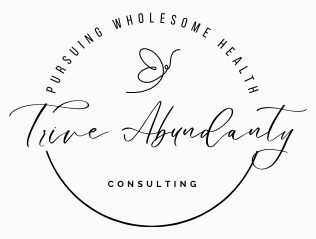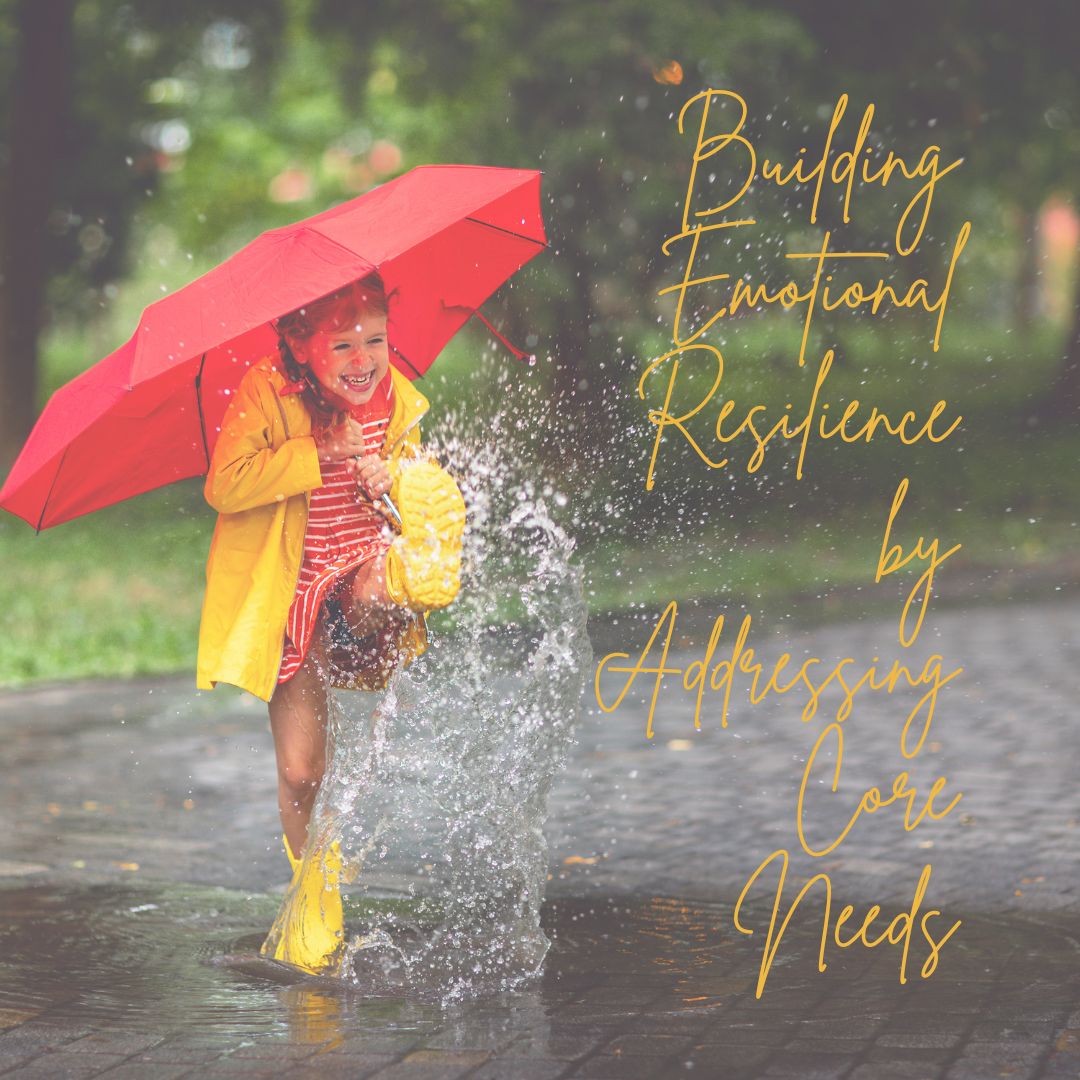Hi! In the previous blog, we began exploring pain, understanding how it can be a signal calling us to attention. We learned to ask the essential question, “What need is arising within me when pain shows up?” and discovered the power of listening to what pain is truly saying. It was a revelation that sometimes our behaviors, even those we dislike, serve a purpose.
Growing up, many of us didn’t have extensive conversations about needs. Instead, we often concluded that if something wasn’t fulfilled, it wasn’t really a necessity. We learned to adapt, to find alternative, often subconscious, ways of meeting these needs. The result? A collection of behaviors that we may not fully understand.
For instance, in my own family, things were far from perfect, as I know to one degree or another all families are. We didn’t have explicit discussions about needs; instead, we navigated through life based on unspoken assumptions. I came to believe that if a need wasn’t met, it probably wasn’t a genuine need. I could cope without it. This was complicated by the scripture about how we can do all things because of Jesus strengthening us.
However, over time, I realized there’s a fundamental difference between what we need to merely survive and what we need to truly thrive. God doesn’t just want us to scrape by; He wants us to soar. How do I know that? Because we are called to bear fruit. Have you ever seen a plant bear fruit, let alone abundant fruit, that was barely surviving? Yeah, me neither. So to bear abundant fruit like we are designed and called by God to, we need to look into what we genuinely need to live not just functional lives but vibrant, purposeful ones.

So, we’re here to talk about needs—the building blocks of our well-being. We’re diving into the heart of what it means to thrive emotionally, to understand these needs, and to start meeting them. After all, the second greatest command tells us to love others as we love ourselves. It would make sense then, to take a look at how well we are actually loving ourselves.
We all have those behaviors we’d rather not have – the ones we’ve been trying to kick to the curb – indicators that there might be some unmet needs lurking beneath the surface The real question is: what are those needs, and how do we distinguish them from just some self-absorbed navel-gazing?
Sometimes, our efforts to change these not-so-optimal behaviors seem futile. Why? Well, one reason is that we might not realize these behaviors actually serve a purpose or have a function for us.
I invite you to pick one of those behaviors you’d love to bid farewell to, and let your thoughts flow onto the pages of your journal. What’s it doing for you? What’s its hidden agenda? Is it acting as a protector from pain, providing comfort, or maybe striving for a deeper connection? As you explore these questions, what’s bubbling up in your mind and heart?
To really grasp the concept of emotional needs, it’s helpful to start by acknowledging the significance of fulfilling our basic needs. These are the fundamental building blocks that enable us to function effectively and create a solid foundation for our emotional well-being. Think of them as the essentials that pave the way for us to dream, grow, and thrive.
Some of these basic essentials are security, safety, and financial stability. Imagine a life where you don’t know where you’ll lay your head at night or where your own neighborhood doesn’t feel safe. It’s unsettling, to say the least. And then there’s financial stability, which provides us with the means to cover our basic necessities—things like food, clothing, and shelter. Without it, life can become a continuous, uphill battle. These basic needs are a foundation on which our emotional well-being is planted.
Fortunately, many of us have these foundational aspects reasonably well covered. Yet, it’s crucial to acknowledge that until these fundamental needs are consistently met, it’s akin to building a pyramid with an unstable base. Everything else has to wait until that base is securely in place. So, if you’re grappling with survival needs such as employment, income, housing, or safety, it’s vital to extend grace to yourself. It’s perfectly okay to prioritize securing these foundational aspects first.
Without these basic building blocks, it becomes significantly more challenging to shift our focus towards emotional growth and fulfillment.
After securing the essentials, it’s time to spread your wings and soar. Let’s look into thriving needs, those elements of life that elevate us beyond mere survival. These needs are closely rooted in love, and by articulating them, we gain awareness of what may have been missing. So, prepare to explore emotional needs, evaluate how they’ve been addressed (or neglected) in your life, and uncover how fulfilling these needs can pave the way for your journey towards thriving.

We can begin by looking at what the fruit of the Spirit is. And what love is, as well as the names of God which tell us of his nature. When God refers to Himself as a Father or a Protector, it signifies that we have legitimate needs for fathering and protection, among others.
A valuable exercise is to delve into God’s different names and how they illuminate our genuine needs. These divine qualities provide us with clues about what we require by God’s design to flourish, grow, and bear abundant fruit, as emphasized in John 15 by Jesus. Achieving abundant fruitfulness isn’t possible if we’re merely getting by spiritually, emotionally, or physically. In today’s discussion, our focus will be primarily on addressing emotional needs, as we’ve already touched upon spiritual needs in the initial sections of this blog series. We’ll reserve a detailed examination of physical needs for a later part, following our exploration of emotional well-being.
I have already emphasized the significance of attunement and validation before – the act of truly seeing, hearing, and understanding oneself. It’s the foundation for emotional well-being. When this foundation is lacking, we might find ourselves resorting to extreme behaviors in an attempt to seek attention. However, it’s essential to remember that we can develop the capacity to attune to and validate ourselves. Often, the feeling of not receiving enough attunement and validation from others stems from outsourcing these needs, rather than doing so for ourselves. Many of us simply didn’t know that self-attunement and self-validation were even possible, let alone how to practice them.
Now is the perfect time to start showing up for yourself before expecting it from others. This doesn’t mean shutting others out; it means taking the initiative to meet your own needs because you can. Self-attunement and self-validation can be remarkably transformative. They empower you to take charge of your emotional well-being, enhancing your relationship with yourself. Remarkably, as you become more proficient at this, you may notice a positive trend – receiving more acknowledgment and validation from others as you practice it for yourself. But remember to keep a good balance, ensuring that you also see and validate others in your life.
Feeling loved – that’s something we all yearn for. It’s about experiencing delight, recognizing our worthiness, and knowing that we are enough when we’re with others. Feeling valued, wanted, chosen, and treasured – these are the building blocks of love. When these needs go unmet, it can drive us to engage in unhealthy behaviors as a way to compensate.
Sometimes, we’ve developed a sense of self-sufficiency, a belief that we don’t need others. But deep down, no matter how strong we are, we all desire to belong. True belonging thrives when we allow ourselves to show vulnerability and let people affect us. It might seem like a daunting step, but it’s okay to start small. For instance, you could begin by seeking help or advice for a minor issue, nothing earth-shattering. This gradual process helps you become accustomed to this new sense of vulnerability, and it also provides others with the opportunity to demonstrate whether they’re the kind of people you want to belong with.
Imagine if there were two versions of you, one as a child and one as your renewed adult self. How would you want to nurture and care for your inner child so that she feels loved and like she truly belongs? That’s the essence of this concept. And before you consider it overly self-centered, remember that the key to understanding our needs lies in who God says He is. If He identifies as the provider, that means we have the legitimate need for provision. If He presents Himself as our comforter, then it’s entirely appropriate for us to need comfort.
I encourage you to spend time exploring God’s attributes and discover how many of them affirm your needs. Connect with Him to receive who He is for you. It’s God who encourages us to love ourselves. In a sense, we can only love others to the extent that we love ourselves, and we can only learn to love ourselves well by allowing God to reveal it to us and then extending that same love to ourselves. I hope this perspective makes sense and resonates with you.
Feeling safe, both emotionally and physically, is crucial. When we lack emotional safety, we often resort to creating self-protective mechanisms. It’s not just about physical security but also emotional and spiritual stability.
Another essential need is feeling provided for, with reasonable indulgences. Without this, we might find ourselves tirelessly working to amass reserves, which can lead to a constant sense of insecurity and self-sufficiency.
We all long to be nurtured – to engage in play, receive physical comfort and affection, be complimented, and share moments of enjoyment with others. It’s about creating space for our emotions, having someone help us identify and understand them, showing a genuine interest in our feelings, asking questions, offering affirmation, celebrating our successes, and providing comfort during challenging times.
Support and belonging are equally vital. Feeling powerful involves having our boundaries respected, our voice acknowledged, and the ability to influence our environment. It’s about knowing there’s room to try and sometimes fail, without the fear of love being withdrawn. Feeling equipped, supported in pursuing our dreams, and genuinely believed.
Feeling connected and part of a team, experiencing companionship, and knowing you belong are all vital for your emotional well-being. When you feel accepted and attached to a group, it becomes easier to be vulnerable and accept help. This fosters emotional intimacy and trust.
Knowing you have support and that others believe in you empowers your emotional well-being. It helps to combat self-doubt and encourages personal growth.

Take a closer look at these descriptive words of love. As you read through them, consider which ones easily connect to your childhood memories at home. Are there words that almost sound foreign to you in the context of your upbringing? Are there areas where you feel there might be a deficit?
Remember, we’re not identifying these aspects to accuse or blame our caregivers. Instead, we’re doing this to prioritize our self-discovery process. When you catch yourself engaging in behaviors you wish to change, ask yourself which of these emotional needs is likely seeking attention at that moment.
Another way to explore this is by reflecting on how you tried to meet these needs when you realized they weren’t adequately fulfilled. What strategies did you employ to try to attain something close to them? Additionally, consider how you reacted when you couldn’t meet these needs. Did you isolate yourself, become overly self-sufficient, compromise your true desires, deny your needs, ignore them, or perhaps aggressively pursue them to make sure they were met?
These kinds of explorations can provide valuable insights and help develop your self-awareness, which is essential for your personal growth and development. So, let’s make a list of these qualities and then write down how you believe your past behaviors either aimed to fulfill these needs or cope with the lack thereof. This process will guide you toward a deeper understanding of yourself and help you move forward on your journey of healing and growth.
Let’s keep it manageable and focused. Choose one emotional need that you realize was seldom met or completely neglected during your upbringing. Once you’ve identified it, reflect on the various ways you behaved to either fulfill that need or alleviate the pain caused by its absence. Think of these behaviors as substitutes that your younger self adopted.
Alternatively, if you’re unsure where to begin, consider pinpointing a behavior that you currently dislike or wish to change. If there are multiple such behaviors, try to discern which core need they might all be connected to.
Please include God in this activity. Take a moment to ask Him to help you and guide you. As an adult, contemplate how you can both receive from God and also initiate the process of meeting this emotional need.
For instance, let’s take the example of the need for celebration. Begin by exploring what celebrating means to you and what activities would bring you genuine joy. Don’t rush this process; it’s a work in progress. Once you’ve identified what you’d enjoy for a celebration, make a deliberate effort to schedule it into your life. It’s ok to experiment until you find what hits the spot best.
Remember, this journey of self-discovery and healing is a significant step towards living a more fulfilling life. As you uncover these emotional needs and explore new ways to meet them, be patient and kind to yourself. It’s a process, and progress may come in small steps.
Sometimes, having someone walk alongside you can make all the difference in staying committed to this transformative work. I want to extend a warm invitation to you. If you ever feel the need for guidance, support, or simply someone to share this journey with, please know that I’m here for you. You can find more about my availability and schedule on my website. It would be an absolute honor to walk alongside you until you’ve built enough inner strength to continue this journey on your own. Your well-being matters, and you’re never alone in this process.
So, we’re here to talk about needs—the building blocks of our well-being. We’re diving into the heart of what it means to thrive emotionally, to understand these needs, and to start meeting them. After all, the second greatest command tells us to love others as we love ourselves. It would make sense then, to take a look at how well we are actually loving ourselves.
We all have those behaviors we’d rather not have – the ones we’ve been trying to kick to the curb – indicators that there might be some unmet needs lurking beneath the surface The real question is: what are those needs, and how do we distinguish them from just some self-absorbed navel-gazing?
Sometimes, our efforts to change these not-so-optimal behaviors seem futile. Why? Well, one reason is that we might not realize these behaviors actually serve a purpose or have a function for us.
I invite you to pick one of those behaviors you’d love to bid farewell to, and let your thoughts flow onto the pages of your journal. What’s it doing for you? What’s its hidden agenda? Is it acting as a protector from pain, providing comfort, or maybe striving for a deeper connection? As you explore these questions, what’s bubbling up in your mind and heart?
To really grasp the concept of emotional needs, it’s helpful to start by acknowledging the significance of fulfilling our basic needs. These are the fundamental building blocks that enable us to function effectively and create a solid foundation for our emotional well-being. Think of them as the essentials that pave the way for us to dream, grow, and thrive.
Some of these basic essentials are security, safety, and financial stability. Imagine a life where you don’t know where you’ll lay your head at night or where your own neighborhood doesn’t feel safe. It’s unsettling, to say the least. And then there’s financial stability, which provides us with the means to cover our basic necessities—things like food, clothing, and shelter. Without it, life can become a continuous, uphill battle. These basic needs are a foundation on which our emotional well-being is planted.
Fortunately, many of us have these foundational aspects reasonably well covered. Yet, it’s crucial to acknowledge that until these fundamental needs are consistently met, it’s akin to building a pyramid with an unstable base. Everything else has to wait until that base is securely in place. So, if you’re grappling with survival needs such as employment, income, housing, or safety, it’s vital to extend grace to yourself. It’s perfectly okay to prioritize securing these foundational aspects first.
Without these basic building blocks, it becomes significantly more challenging to shift our focus towards emotional growth and fulfillment.
After securing the essentials, it’s time to spread your wings and soar. Let’s look into thriving needs, those elements of life that elevate us beyond mere survival. These needs are closely rooted in love, and by articulating them, we gain awareness of what may have been missing. So, prepare to explore emotional needs, evaluate how they’ve been addressed (or neglected) in your life, and uncover how fulfilling these needs can pave the way for your journey towards thriving.
We can begin by looking at what the fruit of the Spirit is. And what love is, as well as the names of God which tell us of his nature. When God refers to Himself as a Father or a Protector, it signifies that we have legitimate needs for fathering and protection, among others.
A valuable exercise is to delve into God’s different names and how they illuminate our genuine needs. These divine qualities provide us with clues about what we require by God’s design to flourish, grow, and bear abundant fruit, as emphasized in John 15 by Jesus. Achieving abundant fruitfulness isn’t possible if we’re merely getting by spiritually, emotionally, or physically. In today’s discussion, our focus will be primarily on addressing emotional needs, as we’ve already touched upon spiritual needs in the initial sections of this blog series. We’ll reserve a detailed examination of physical needs for a later part, following our exploration of emotional well-being.
I have already emphasized the significance of attunement and validation before – the act of truly seeing, hearing, and understanding oneself. It’s the foundation for emotional well-being. When this foundation is lacking, we might find ourselves resorting to extreme behaviors in an attempt to seek attention. However, it’s essential to remember that we can develop the capacity to attune to and validate ourselves. Often, the feeling of not receiving enough attunement and validation from others stems from outsourcing these needs, rather than doing so for ourselves. Many of us simply didn’t know that self-attunement and self-validation were even possible, let alone how to practice them.
Now is the perfect time to start showing up for yourself before expecting it from others. This doesn’t mean shutting others out; it means taking the initiative to meet your own needs because you can. Self-attunement and self-validation can be remarkably transformative. They empower you to take charge of your emotional well-being, enhancing your relationship with yourself. Remarkably, as you become more proficient at this, you may notice a positive trend – receiving more acknowledgment and validation from others as you practice it for yourself. But remember to keep a good balance, ensuring that you also see and validate others in your life.
Feeling loved – that’s something we all yearn for. It’s about experiencing delight, recognizing our worthiness, and knowing that we are enough when we’re with others. Feeling valued, wanted, chosen, and treasured – these are the building blocks of love. When these needs go unmet, it can drive us to engage in unhealthy behaviors as a way to compensate.
Sometimes, we’ve developed a sense of self-sufficiency, a belief that we don’t need others. But deep down, no matter how strong we are, we all desire to belong. True belonging thrives when we allow ourselves to show vulnerability and let people affect us. It might seem like a daunting step, but it’s okay to start small. For instance, you could begin by seeking help or advice for a minor issue, nothing earth-shattering. This gradual process helps you become accustomed to this new sense of vulnerability, and it also provides others with the opportunity to demonstrate whether they’re the kind of people you want to belong with.
Imagine if there were two versions of you, one as a child and one as your renewed adult self. How would you want to nurture and care for your inner child so that she feels loved and like she truly belongs? That’s the essence of this concept. And before you consider it overly self-centered, remember that the key to understanding our needs lies in who God says He is. If He identifies as the provider, that means we have the legitimate need for provision. If He presents Himself as our comforter, then it’s entirely appropriate for us to need comfort.
I encourage you to spend time exploring God’s attributes and discover how many of them affirm your needs. Connect with Him to receive who He is for you. It’s God who encourages us to love ourselves. In a sense, we can only love others to the extent that we love ourselves, and we can only learn to love ourselves well by allowing God to reveal it to us and then extending that same love to ourselves. I hope this perspective makes sense and resonates with you.
Feeling safe, both emotionally and physically, is crucial. When we lack emotional safety, we often resort to creating self-protective mechanisms. It’s not just about physical security but also emotional and spiritual stability.
Another essential need is feeling provided for, with reasonable indulgences. Without this, we might find ourselves tirelessly working to amass reserves, which can lead to a constant sense of insecurity and self-sufficiency.
We all long to be nurtured – to engage in play, receive physical comfort and affection, be complimented, and share moments of enjoyment with others. It’s about creating space for our emotions, having someone help us identify and understand them, showing a genuine interest in our feelings, asking questions, offering affirmation, celebrating our successes, and providing comfort during challenging times.
Support and belonging are equally vital. Feeling powerful involves having our boundaries respected, our voice acknowledged, and the ability to influence our environment. It’s about knowing there’s room to try and sometimes fail, without the fear of love being withdrawn. Feeling equipped, supported in pursuing our dreams, and genuinely believed.
Feeling connected and part of a team, experiencing companionship, and knowing you belong are all vital for your emotional well-being. When you feel accepted and attached to a group, it becomes easier to be vulnerable and accept help. This fosters emotional intimacy and trust.
Knowing you have support and that others believe in you empowers your emotional well-being. It helps to combat self-doubt and encourages personal growth.
Take a closer look at these descriptive words of love. As you read through them, consider which ones easily connect to your childhood memories at home. Are there words that almost sound foreign to you in the context of your upbringing? Are there areas where you feel there might be a deficit?
Remember, we’re not identifying these aspects to accuse or blame our caregivers. Instead, we’re doing this to prioritize our self-discovery process. When you catch yourself engaging in behaviors you wish to change, ask yourself which of these emotional needs is likely seeking attention at that moment.
Another way to explore this is by reflecting on how you tried to meet these needs when you realized they weren’t adequately fulfilled. What strategies did you employ to try to attain something close to them? Additionally, consider how you reacted when you couldn’t meet these needs. Did you isolate yourself, become overly self-sufficient, compromise your true desires, deny your needs, ignore them, or perhaps aggressively pursue them to make sure they were met?
These kinds of explorations can provide valuable insights and help develop your self-awareness, which is essential for your personal growth and development. So, let’s make a list of these qualities and then write down how you believe your past behaviors either aimed to fulfill these needs or cope with the lack thereof. This process will guide you toward a deeper understanding of yourself and help you move forward on your journey of healing and growth.
Let’s keep it manageable and focused. Choose one emotional need that you realize was seldom met or completely neglected during your upbringing. Once you’ve identified it, reflect on the various ways you behaved to either fulfill that need or alleviate the pain caused by its absence. Think of these behaviors as substitutes that your younger self adopted.
Alternatively, if you’re unsure where to begin, consider pinpointing a behavior that you currently dislike or wish to change. If there are multiple such behaviors, try to discern which core need they might all be connected to.
Please include God in this activity. Take a moment to ask Him to help you and guide you. As an adult, contemplate how you can both receive from God and also initiate the process of meeting this emotional need.
For instance, let’s take the example of the need for celebration. Begin by exploring what celebrating means to you and what activities would bring you genuine joy. Don’t rush this process; it’s a work in progress. Once you’ve identified what you’d enjoy for a celebration, make a deliberate effort to schedule it into your life. It’s ok to experiment until you find what hits the spot best.
Remember, this journey of self-discovery and healing is a significant step towards living a more fulfilling life. As you uncover these emotional needs and explore new ways to meet them, be patient and kind to yourself. It’s a process, and progress may come in small steps.
Sometimes, having someone walk alongside you can make all the difference in staying committed to this transformative work. I want to extend a warm invitation to you. If you ever feel the need for guidance, support, or simply someone to share this journey with, please know that I’m here for you. You can find more about my availability and schedule on my website. It would be an absolute honor to walk alongside you until you’ve built enough inner strength to continue this journey on your own. Your well-being matters, and you’re never alone in this process.







